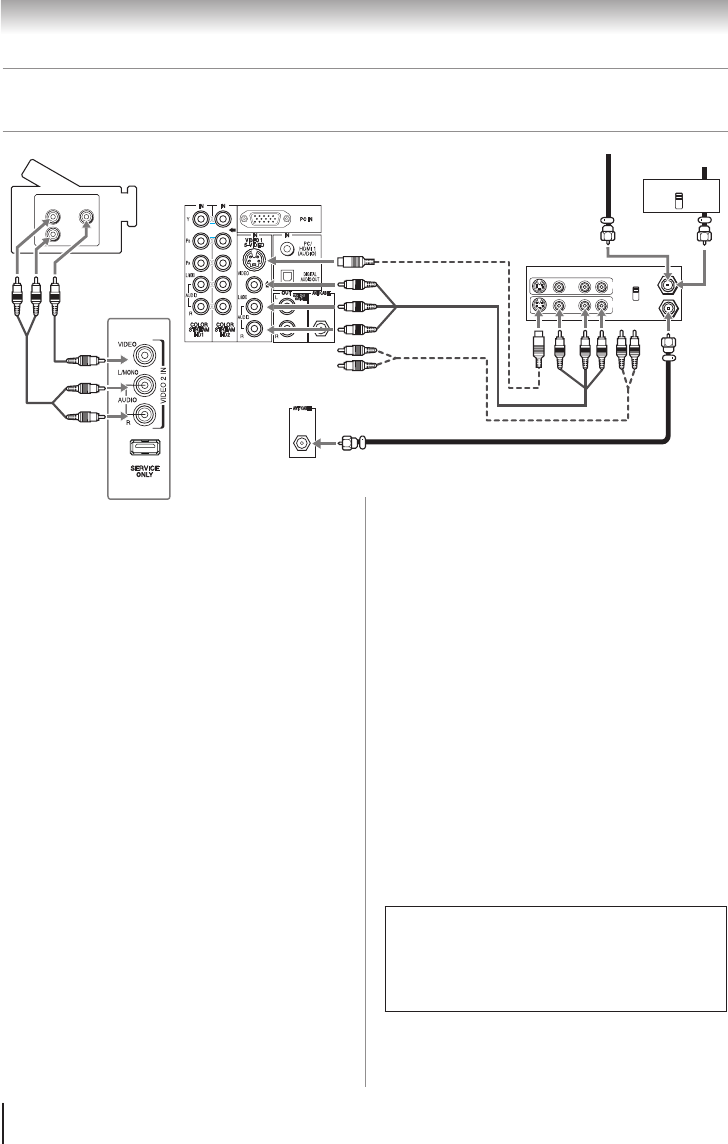
14
Chapter 2: Connecting your TV
Connecting a VCR (or a VCR with S-video) and antenna, Cable TV or
Camcorder
IN
OUT
CH 3
CH 4
IN
from
ANT
VIDEO AUDIO
OUT
to
TV
L R
R
L
OUT
IN
CH 3
CH 4
VIDEO
AUDIO
OUT
L
R
VIDEO 2 inputs
on TV right side
panel
TV back panel
Camcorder
Stereo VCR
Cable box
From Cable TV
From Cable TV or
antenna
You will need:
•
coaxial cables
•
S-video cable
−
For better picture performance, if your VCR
has S-video, use an S-video cable (plus the
audio cables) instead of the standard video
cable. Do not connect both types of video
cable to VIDEO 1 at the same time or the
picture performance will be unacceptable.
−
For better picture performance, if your
camcorder has S-video, connect an S-video
cable (plus the audio cables) to VIDEO 1 on
the TV back side instead of the VIDEO 2 on
the TV side panel.
−
If you have a mono VCR, connect L/MONO
on the TV to your VCR’s audio out terminal
using the white audio cable only.
•
S-video cable (if your VCR or camcorder has S-video)
−
Do not connect both types of video cable
to VIDEO 1 at the same time or the picture
performance will be unacceptable.
•
standard audio cables (If you have a mono VCR or
camcorder has S-video)
Note: When you use a Cable box, you may not
be able to use the remote control to program or
access certain features on the TV.
To view the antenna or Cable signal:
Select the ANT/CABLE video input source on the TV.*
To view basic and premium Cable channels:
Turn OFF the VCR. Select the ANT/CABLE video
input source on the TV.* Tune the TV to channel 3 or
4 (whichever channel the Cable box output is set to).
Use the Cable box controls to change channels.
To view the VCR:
Turn ON the VCR. Select the VIDEO 1 video input
source on the TV.*
To view the camcorder video:
Select the VIDEO 2 video input source on the TV.*
*
To select the video input source, press INPUT on
the remote control ( page 21). To program the
TV remote control to operate other devices, see
Chapter 3.
The unauthorized recording, use, distribution, or
revision of television programs, videotapes, DVDs,
and other materials is prohibited under the Copyright
Laws of the United States and other countries, and may
subject you to civil and criminal liability.
S-video cable
or
Standard
A/V cable
Audio cable


















